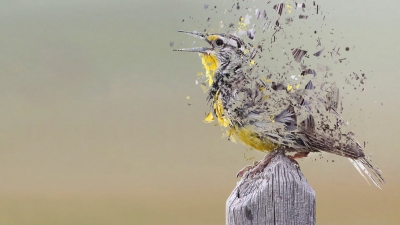WHAT PERCENTAGE OF THE BIRD POPULATION IS DECLINING?

Close to 48% of bird species the world over are known or suspected to be undergoing population decline.
We often come across reports on how several factors - invariably human-induced - are continuing to affect our environment and wildlife. Along comes a new study that says that about half the bird species in the world could be showing population decline.
Scientists studied data from the International Union for Conservation of Nature's "Red List to understand the population changes among the more than 10.000 species of birds in the world. And the results haven't been comforting. It has revealed that close to 48% of bird species the world over "are known or suspected to be undergoing population declines". In addition, the status of 7% of all species is not clear. Comfortingly though, the population of 39% of species has remained "stable" while "6% are showing increasing population trends".
This study comes on the heels of a 2019 study that discovered that about "3 billion breeding birds" were lost in the last five decades in just the U.S. and Canada. Sadly, the new study is a revelation that population decline is more global than previously thought. The scientists also feel this could be an indication of "a new wave of extinctions of continentally distributed bird species".
So what has caused this decline? It is likely the combined and continuing effects of climate change, habitat loss and degradation, and overexploitation of species. It is important to tackle these issues with urgency because the population decline in birds is not a standalone concern. They are indicators of the health of our natural world, and since our natural world is connected in myriad ways, what affects birds deeply impacts wildlife habitats, other wildlife, and humans too.
Thankfully, the study authors mention that all is not lost yet because fortunately, "the global network of bird conservation organizations taking part in this study have the tools to prevent further loss of bird species and abundance".
Picture Credit : Google